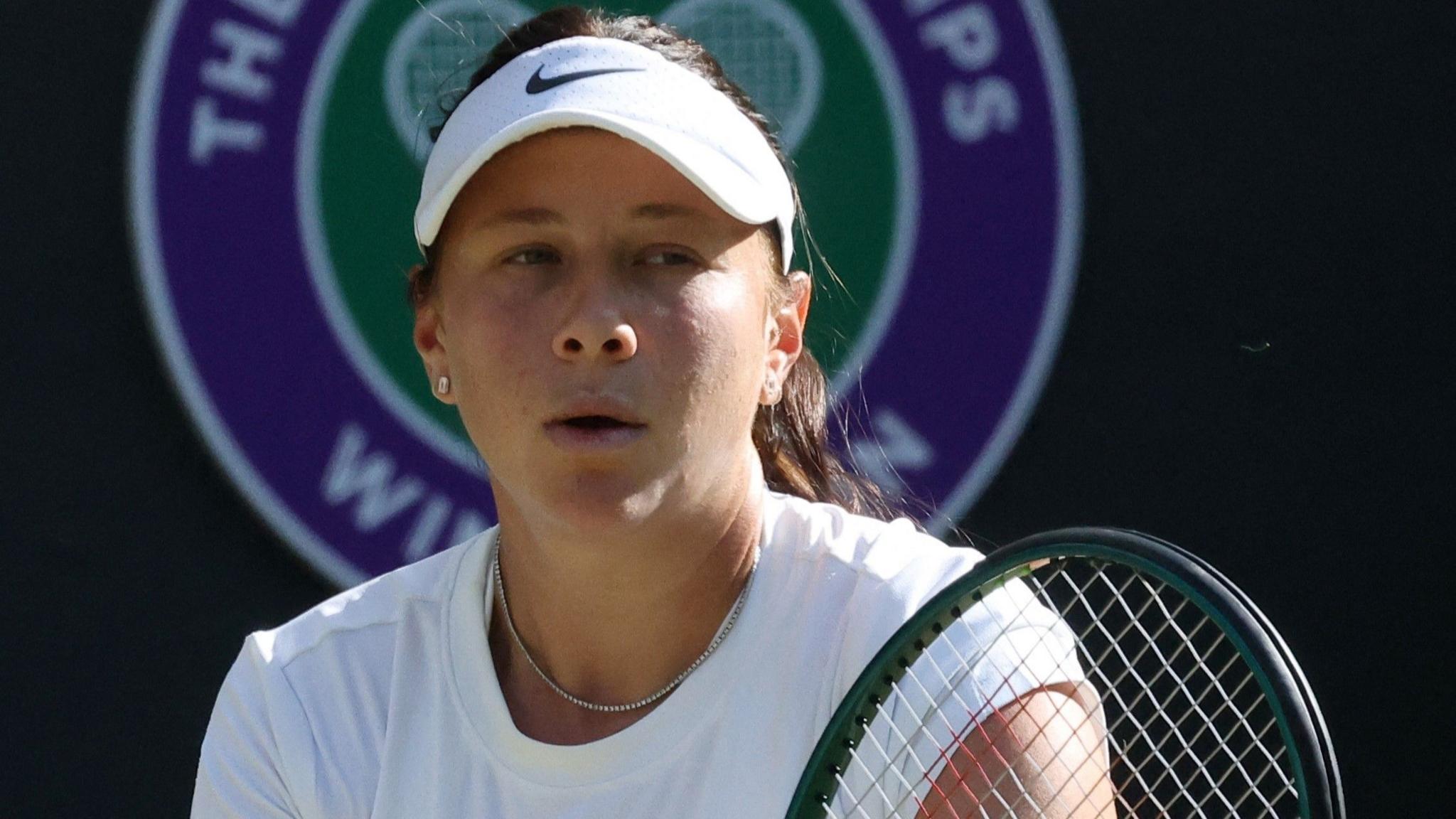To play this video you need to enable JavaScript in your browser.
Wimbledon 2025
Dates: 30 June-13 July Venue: All England Club
Before she was a Wimbledon semi-finalist, Amanda Anisimova was a teenage prodigy tipped to win Grand Slam titles.
She reached the 2019 French Open semi-finals as a 17-year-old, stunning defending champion Simona Halep along the way, and moved inside the world’s top 25.
But four years later, Anisimova knew she needed to stop. Struggling with her mental health and burnout, she found it “unbearable” to be at tennis tournaments.
She did not touch a racquet for months. She took holidays, saw friends and family, attended her university in person for a semester, and stayed away from tennis until the itch returned.
Now set to face world number one Aryna Sabalenka on Thursday for a place in a first Grand Slam final, Anisimova is thankful she could take the time to reset.
“I learned a lot about myself, my interests off the court and just taking some time to breathe and live a normal life for a bit,” the 23-year-old told BBC Radio 5 Live.
With an 11-month season, players go from hotel room to hotel room around the world in a push for points and prize money.
That goes alongside the psychological impact of trying to break a losing streak, the pressure of trying to win a Grand Slam and abusive messages on social media.
Matteo Berrettini, who has spent three years battling injuries, said it was a “heavy” feeling to be on court, while world number three Alexander Zverev said he was “lacking joy” both inside and outside of tennis and had “never felt this empty before”.
Andrey Rublev has been open about his struggles, telling the Guardian in January that he worked with a psychologist to stop feeling “that crazy anxiety and stress of not understanding what to do with my life”.
He also has a new perspective. At one point, winning a Grand Slam was everything to Rublev. Now, he says he knows it would not change his life at all – but he also knows how difficult it is to give yourself space away from the sport.
“In the end, tennis is just the trigger point. It’s something inside of you that you need to face,” Rublev said.
Five-time major winner Carlos Alcaraz said in a Netflix documentary that his biggest fear was that tennis would become an “obligation”.
The relentless pursuit of success, the determination to clinch that long-awaited Grand Slam or to snap a losing streak against a particular player becomes a part of someone’s personality, and they can find it difficult to know where tennis ends and they begin.
Alcaraz makes a concerted effort to enjoy himself on and off the court. It is not unusual to see him laughing after an amazing point – even when he was struggling against Fabio Fognini in the Wimbledon first round, he still managed to smile at his opponent’s ridiculous shot-making.
He has also spoken about how mentally refreshing his trips to Ibiza have been, even if his team did not want him to go after his 2024 French Open triumph.
“It’s about having fun playing tennis, have fun stepping on the court and not thinking about the result,” the Spaniard said.
Australian Open champion Madison Keys has spoken about how therapy helped her gain perspective.
The American previously worked with sports psychologists, but said focusing on sport “was not as helpful as I needed it to be”.
“From a pretty young age, our identity becomes very wrapped up in being a tennis player,” Keys said.
“That’s great but when you have tough weeks, months and years on tour, that can take a toll on how you think about yourself as a person.
“Being able to dive into that and figure out how to separate the two and know that you’re not just a tennis player, you’re a full person that has all of these other really great attributes and interests, was a really important piece for me.

Sabalenka worked with a therapist for five years before deciding she was ready to “take responsibility”, describing herself as “my own psychologist”.
She talks openly with her team, saying: “We can talk about whatever. I know they’re not going to judge me.
“They’re not going to blame me. They just going to accept it, and we are going to work through.”
Anisimova says her break was “a necessary thing” and put her on the trajectory she is on today.
Since returning to the tour, she has won the biggest title of her career at the WTA 1,000 event in Doha and broken into the world’s top 10.
“It was something that I needed to for myself,” she added.
“I definitely had to find my way back, really work on the fitness side, and get in my hours of training.
To play this video you need to enable JavaScript in your browser.
Related topics
- Tennis
Source: BBC

Leave a Reply